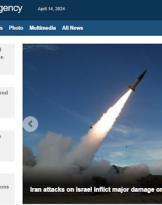If Italy worthily honored its soldiers this would be a different country; if instead of celebrating false myths, concentrating on fashionable jokes, the name of someone who, for this foolish country, really did something, started to shout, then we could say we are proud to be Italian. We all know that this is not the case: aware of Sunday patriotism at the stadium and victims of a necessary world, but without values. However, there are men whose name does not arouse clamor, but who have done a lot for this nation, wearing a uniform and giving themselves, body and soul, to carry out their duty. Men like General Franco Monticone, born in Asti, commander of the Ninth "Col Moschin" from 1978 to 1980 and then commander of the paratroopers brigade thunderbolt from the 1988 1991.
The years in which Monticone was commander of the “Col Moschin” were not at all simple: Italy was still dealing with the terrorism of the Red Brigades and was still breathing the air of terror following the assassination of President Moro. In that period, the soldiers of the special corps - ignored by most even within the Armed Forces - played the role of silent sentinels: present, but with discretion. So wanted the government and the Italian public opinion itself, always a little wary of the uniform and the amaranth beret. Those were years in which the Italian special forces were acquiring greater awareness of their importance and specificity, but above all they knew that to reach an optimal level of operation it was necessary to work hard. The Americans had an advantage over all: the experience in Vietnam had made them "top of the class", even in bankruptcies. Few officers and non-commissioned officers of Col Moschin then thought of absorbing, improving, but above all adapting to our context the large baggage of knowledge gained in years of training alongside them. Monticone was one of those, being he the father of special employment, one of the founding operational doctrines that distinguish the excellence of the Nono from any other department in the army. Terrorism, in fact, taught the world that there were no more rules and how lethal it was to challenge fanatics following the classic police procedures. We needed people destined, in fact, to a special job, ready to work in difficult conditions, within dramatic scenarios with the presence of civil and defenseless personnel. Monticone understood that, in this field, Italy could be a step forward having already experienced - in Alto Adige - the so-called “war among the people”.
"In a Direct Action" - Monticone explained - “Undertaken against hostile forces belonging to a regular army, the violence was conveyed according to very high parameters, this meant that in a short period of time it was necessary to inflict heavy losses on the enemy, capable of paralyzing him for a long time. In an equivocal context, with civilians in the hands of terrorists, the measurement of violence necessarily had to be controlled, limited and proportionate to the nature of the danger ".
The presence of hostages together with civilians therefore posed the role of the raider in the face of new and more complex problems of a moral nature that certainly gave an exaggerated advantage to those who, on the other hand, did evil without any moral constraint. It was necessary to overcome this barrier: "These limitations were overcome only with intense and exasperated training, with fire exercises carried out with war ammunition, with conditions similar, as far as possible, to a real situation".
What had happened at the Munich Olympics gave a hard lesson to the police forces all over the world which, from that year on, began to equip themselves with bodies specially dedicated to resolving those situations. Italy had the GIS of the carabinieri behind which, however, there were the instructors of the Ninth Battalion. “There was a break with the past - Monticone said - also in psychological terms. Either for the type of task to which we were called, or for achieving a perfect balance between combat preparation and environmental mobility. Last but not least, the department demonstrated that the special forces had a vocation for tasks of that type, finding confirmation in the fact that in many countries the counter-terrorism functions were entrusted to units of the army, rather than to the police forces ". Monticone's thought and actions therefore marked a change of pace dictated by circumstances, promptly grasped by the trainers of the “Col Moschin”. Undoubtedly the training exchanges with other countries helped a lot, but we always remember that we started from an equal training level. As Commander Bertolini once said: "Grateful to everyone, but indebted to no one!".
All this is not meant to be a celebration of Mars, only that too often we are used to incensing a thousand aspects of our life that are successful in any field, but never the military one. Such laurels are rare, reserved for people who have been dead for decades and - let's face it - on several occasions it causes annoyance or rigidity among the right-thinking. Perhaps it would be time to start changing the page, talking about these "silent sentinels" who, with their sacrifice, allow us to live a more peaceful life.
Thanks General Franco Monticone.
Photo: Erika Monticone











